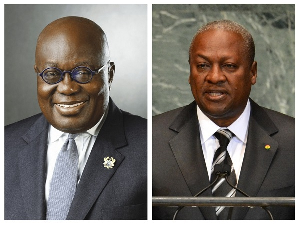The non-involvement of local authorities in the selection and supervision of projects funded with petroleum revenue has been identified as a factor to public dissatisfaction with the management of Ghana’s oil revenue.
The situation, according to the Public Interest and Accountability Committee (PIAC), challenges the monitoring and tracking of such projects. The Committee wants the government to involve local authorities in the execution of projects for purposes of transparency and accountability.
PIAC has been engaging constituents of Bekwai and Kwabre East in the Ashanti Region on the management of Ghana’s petroleum revenues. Participants at the two meetings raised concerns on the use of the $3.4 billion oil money accrued to the country over the past six years.
They say the government is yet to convince communities on the impacts of the oil revenue to economic growth, arguing that some listed projects in their respective areas do not exist. Beneficiaries of projects funded with oil revenue are unaware of the sources of funding.
The District Chief Executive for Kwabre East, Nana Osei Assibey, expressed dissatisfaction with project execution in the area without the involvement of the assembly. “As beneficiaries of oil revenue funded projects, we are not even aware of the source of funding. The assembly should be involved in the area of awarding the contract to enable us monitor and supervise the project to specification. We are not saying the assembly should award the contract but the central government should notify us.” T
he Kwabre East District is a beneficiary of three oil revenue funded projects including upgrading of the Antoa-Tikrom road, a 6-unit classroom block at Aboaso Islamic Call Primary school, and the abandoned Mampongten Jubilee market.
A joint team of PIAC and the Institute of Financial and Economic Journalists (IFEJ) together with the DCE for Kwabre East inspected these projects even though the assembly was unaware of the source of funding from the projects.
About GH¢2 million oil revenue was injected into the upgrading of the Antoa-Tikrom road and GH¢137,000 was used to complete the 6-unit classroom block at Aboaso Islamic Call Primary school in 2014. Four million Cedis oil revenue was used to begin the construction of the Mampongteng Jubilee market in August 2012 and the project was halted in December 2012 due to unavailability of funds.
About GH¢8 million was estimated to completed the entire market project in 2012 but the cost has been shot to GH¢20million as at 2016 as a result of delays. Yet, no positive effort has been made to complete the market.
A member of the Public Interest and Accountability Committee (PIAC), Dr Steve Manteaw, observed the non-involvement of local authorities in executing projects leads to poor supervision and poor execution of projects.
“The picture that is emerging during our inspection tour is that, not the regional administration nor the district assemblies are involved in the selection and supervision of oil revenue funded projects in their areas. This is not good enough for ensuring efficient delivery of projects and services funded with the oil money.”
The joint team from PIAC and IFEJ also inspected the on-going rehabilitation works on the Obogu-Ofoase-Gyadem-Bodwesango-Adansi Asokwa-Bodwesango road. The 63.7 kilometre road project has been funded by the Annual Budget Funding Account for five continuous years up to the tune of GH¢23.4 million. The contractor is hopeful to complete the road project by the end of 2017.
About GH¢1.5 million of the oil money have also been used to clear the debt owed by the government for surfacing of the 3.5 kilometre Fomena town roads.
PIAC has recommended that oil money be used to fund projects from foundation to completion stage for easy identification.











